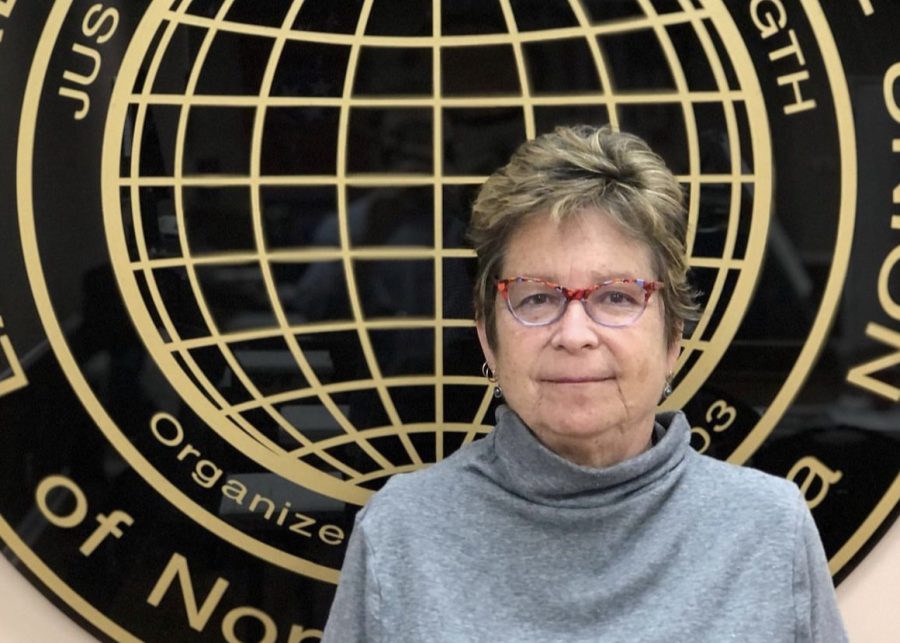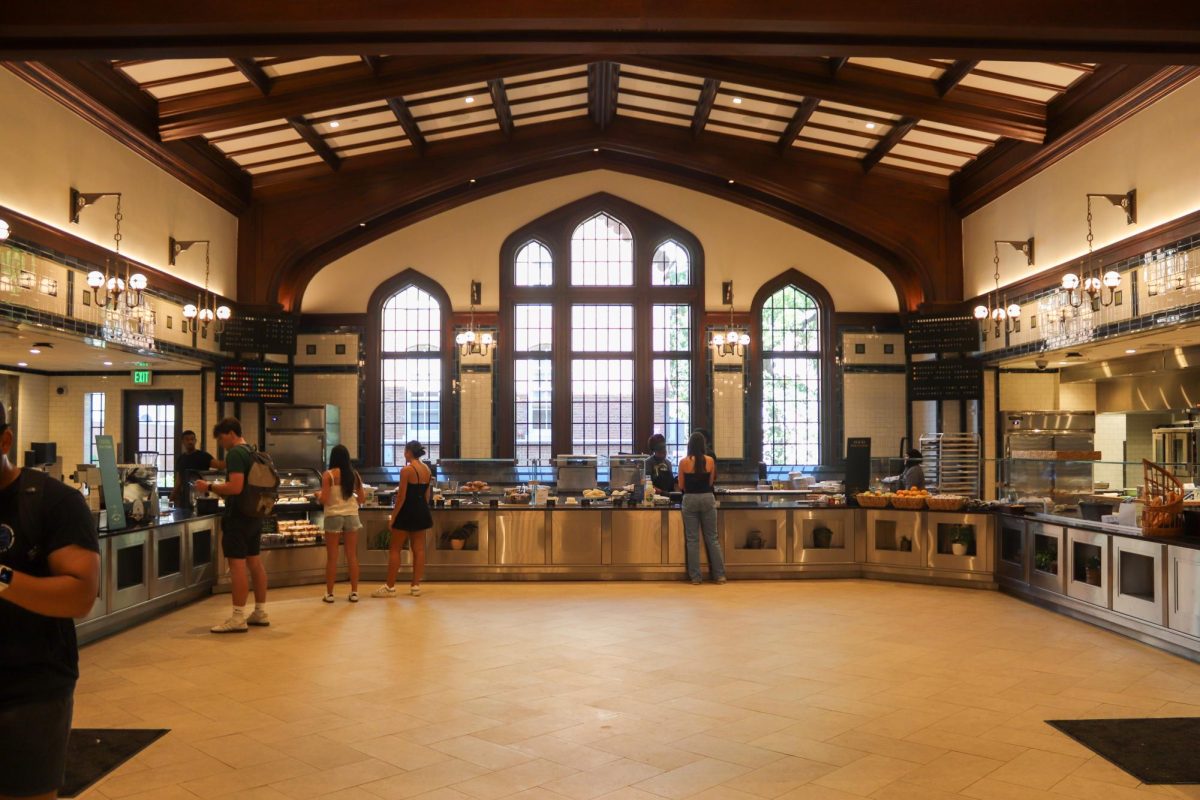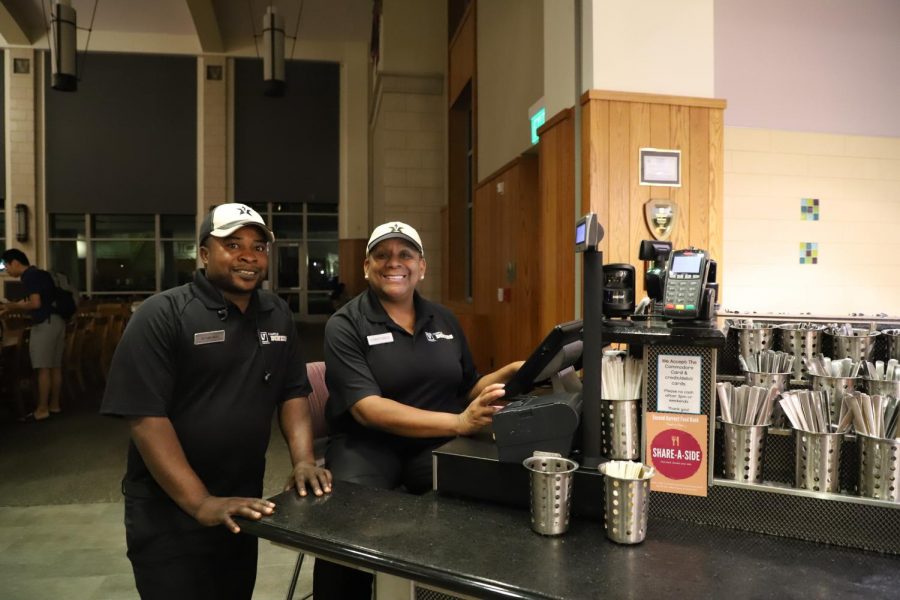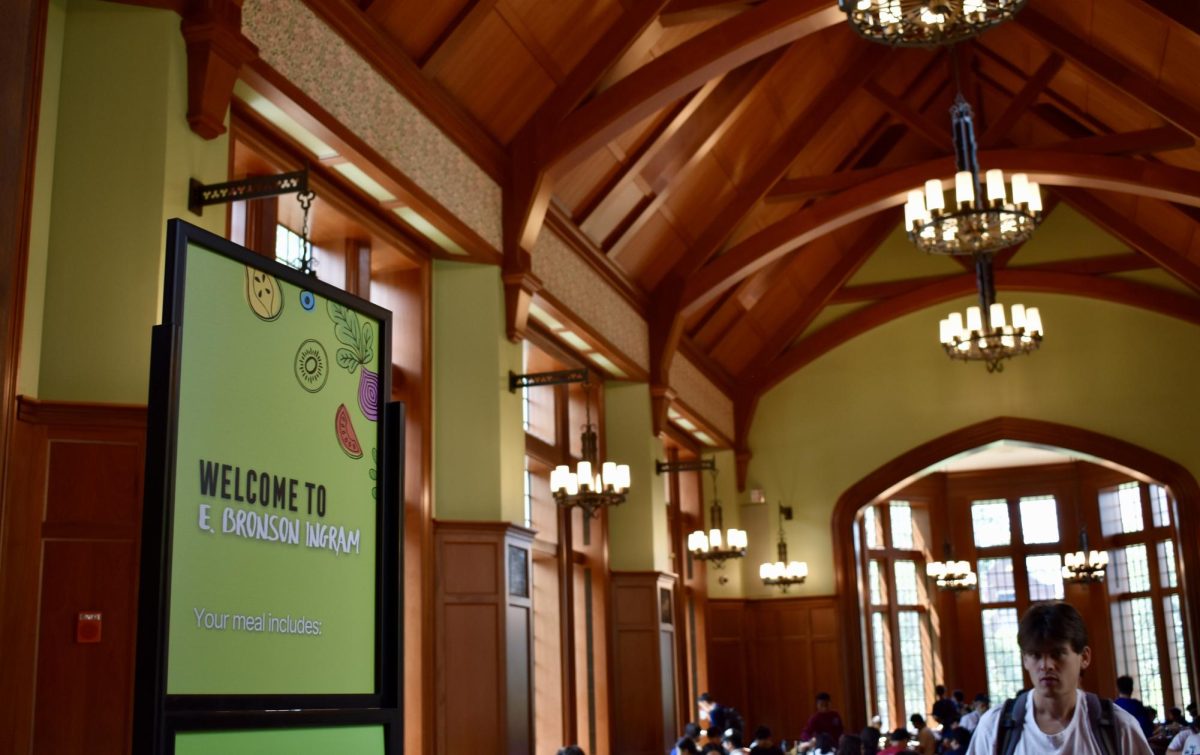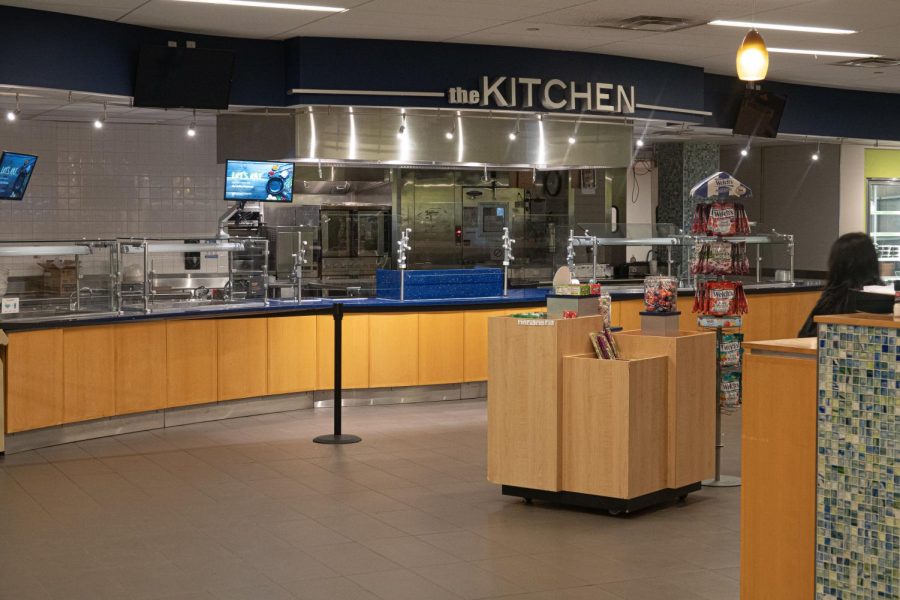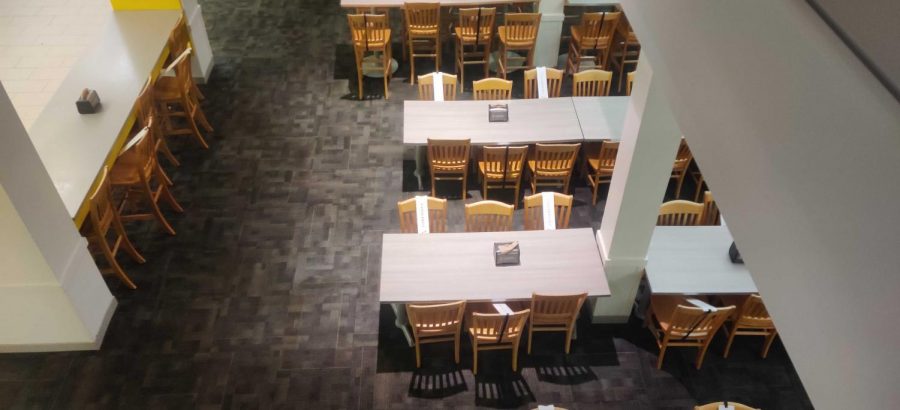Anne Alukonis, former Kissam Kitchen dining employee and head dining representative for LiUNA Local 386 Workers Union, spoke with The Hustler about the Vanderbilt employee experience and areas in which she believes the university should improve. She also weighed in on student and employee critiques of Campus Dining, calling for a culture shift in the way dining workers are viewed by administrators and students alike.
She acknowledged the progress that has been achieved through her union efforts but called on administration to do a better job of gathering employee feedback and providing benefits. Alukonis also said she empathizes with many of students’ concerns about dining and proposed solutions to improve worker retention and food quality.
Approach to work
Alukonis joined Campus Dining in 2007 as a cleaner at Rand. She said it was in this position that she realized her potential, given her experience in youth services. She began to talk to students while cleaning as a means of spreading compassion and human connection.
“If professionalism means being very cold and non-connected, I don’t think that’s a good thing. I think that personal touch and that acknowledgement of the human spirit in front of me made a big difference in people’s responses,” Alukonis said. “I knew they [students] were missing something: that non-authoritative, sincere interest in a bit of somebody’s life.”
She said she tried to approach each student with kindness and compassion, especially given how far some students are away from home. In doing so, Alukonis said she realized food service was the ideal field in which to forge these personal human connections.
“I know how I would feel if my kid was 3,000 miles away. When you interchange food, there is a very strong bond. That’s why families eat together all the time — the food and drink bring people together and keep people connected,” Alukonis said.
Having now retired, Alukonis expressed her gratitude to students for forming the basis of many of her favorite memories from her time at Vanderbilt.
“Thanks to all the students and customers for sharing your smiles, your words, your humor, your accomplishments, fears and tears, your day, your experiences, hopes and dreams, your families, ideas and concerns. This has brought me great joy and happiness. I can only hope it has done the same for you,” Alukonis said in a message to The Hustler.
Administrative relations
Alukonis also commented on an apparent shift in employer-employee relationships during her time at Vanderbilt. She noted that, in the past, there was an added emphasis on worker happiness.
“Workers were always first because if your workers were happy, they would be more productive. That happiness would bubble over to your customer or client eventually,” Alukonis said.
Now, Alukonis said she believes workers are not a top priority of Vanderbilt’s administration based on their working conditions, benefits and salaries. Her primary call-to-action for administration is to “elevate the people on the ground” by incorporating their feedback in major decisions. Whereas students are surveyed semi-annually by Campus Dining, Alukonis said that employees receive a survey once per year or when a problem arises.
“People on the floor will know a lot more about what kids like, what kids don’t like than the top dogs. It’s happening everywhere, but I hold Vanderbilt in a higher regard because of their status in the country,” Alukonis said. “If you’re a top 20 school, I hope you would strive for the leading edge in employee relations, benefits, salaries and conditions.”
In a message to The Hustler, Campus Dining reaffirmed its commitment to fostering safe work environments and supporting training programs like its Culinary Academy. It declined to comment specifically about its emphasis on happiness in the workplace.
“Campus Dining values its culinary and support staff, and works to provide a safe, supportive environment where all members of our team can grow to reach their utmost potential,” Campus Dining said in an email to The Hustler. “In support of this, Campus Dining continues to invest time and resources into the Culinary Academy, a training program for hourly Campus Dining staff that provides relevant job skills and unlocks advancement opportunities.”
Response to student and staff concerns
Alukonis believes that some but not all decisions made by Campus Dining are made with students in mind as the top priority. She praised Dining’s efforts in creating gluten-free and allergen-free dining halls at Kissam and 2301, respectively, explaining that these initiatives were significant undertakings. However, she also cited the decision to close Kissam after spring break — a decision which was overturned a few weeks later — as one she believes was made without taking student safety and short-term needs into consideration. Campus Dining declined to comment on the factors that went into this decision.
Alukonis said a barrier to employee retention is that some dining workers do not qualify for the Family and Medical Leave Act due to a lack of dining positions during the summer, resulting in an inability to meet the total number of annual work hours required for eligibility. She encouraged Vanderbilt to create an institution-wide policy for placing these workers in other campus departments and city-wide Vanderbilt affiliates. Campus Dining declined to comment about the feasibility of implementing such a policy. The program currently in place to transfer dining workers to other departments — housekeeping and maintenance — for the summer was organized by dining management itself, with no assistance from administration, according to Alukonis.
“Everyone in dining needs to be placed somewhere in the summer,” Alukonis said. “Once again, if you’re going to be top 20 in the country, then can’t you come up with another 100 jobs in this whole city? You wouldn’t lose people that way either.”
Alukonis also responded to several common concerns students have about dining, including evening dining availability, quality of food and logistical organization. She affirmed that Vanderbilt’s cooks are doing the best they can with the available ingredients and believes that any improvements in food quality need to come from those in the ordering department.
“Some of the [food] quality needs to improve, and that’s in what they’re ordering. That’s not what the cooks are given — they don’t have a choice,” Alukonis said.
Campus Dining recently announced changes in the meal plan for the 2023-24 school year that limit Munchie Mart swipes to two per day. Alukonis said she believes this decision is due to packaged food being more expensive to purchase than the food served in dining halls but still believes Munchie Mart food — particularly frozen meals — should be available to students when needed.
“The profit from frozen meals is minimal, making them what some would consider cost-ineffective,” Alukonis said. “But since dining is nonprofit, selling them [frozen meals] on the meal plan should be reconsidered because students really like them.”
Campus Dining stated in a message to The Hustler that meal plan revenue is used to fund its dining program but declined to explain the reasoning behind this policy change.
“Costs are subject to inflation and other economic factors, and include direct food costs, employee wages and benefits and other operating overhead,” Campus Dining said.
Alukonis also commented on logistical operations that have become issues over the past couple years, particularly the dish conveyor belts at Rothschild and Rand. Though the Rothschild dishwashing room meets building code standards, Alukonis said that it is challenging to work in due to its small size and “uncomfortable” spatial organization.
“It’s hard to get people to stay in a dish room: it’s very hot; it’s slippery. And the way that one [Rothschild] is set up, it’s not easy to create a smooth system,” Alukonis said.
Similarly, the dish conveyor belt in front of 2301 was removed due to its allegedly displeasing aesthetic appearance, according to Alukonis. She said this change puts an additional strain on dining employees when students do not return their used dishes to the other conveyor belt, as employees now have to pick up the trays and manually carry them over to the appropriate belt.
Culture of service industry
Alukonis also voiced her calls for a culture shift in the way dining workers are viewed by students and administrators. Though she attributes many of the positive memories of her career to her interactions with students, she believes there is still more room for progress in how students engage with Vanderbilt’s service employees.
“One of the questions I always ask is: you know your professor’s name that you see three times a week, but do you know the name of the lady that serves your breakfast every day?” Alukonis said.
Alukonis praised her managers for allowing her and her coworkers to “develop a location and create an experience” for students but called on administration to continue their efforts to appreciate dining workers. In a message to The Hustler, Campus Dining reaffirmed its appreciation of its staff.
“The upper echelon needs to view dining workers in a different way,” Alukonis said. “They [dining workers] need to be elevated and valued for what they do. Contrary to popular belief, what we do differs from fast food. Instead of putting money into renovations and additions, put more into staff salaries and training.”

